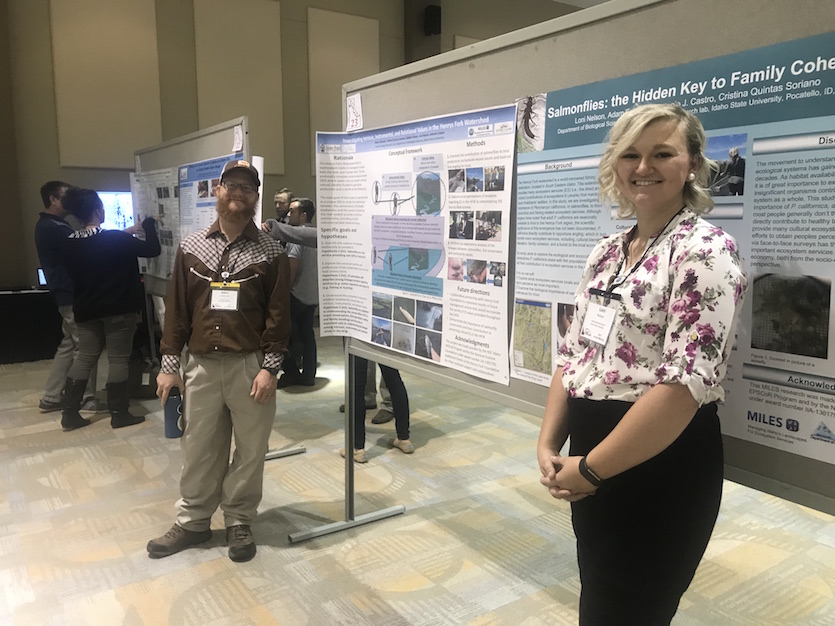Idaho NSF EPSCoR annual meeting hosted at ISU; participants exploring research on how cities grow out into rural areas
October 12, 2017

POCATELLO – Researchers are discussing how mid-sized cities grow out into rural areas at the Idaho National Science Foundation EPSCoR annual meeting being hosted at Idaho State University this week.
“Our research focus has been studying how mid-sized cities grow in the country into farm and wild land and how people in those areas are using the resources that land provides and how those resources will be changed,” said David Rodgers, ISU associate dean of the College of Science and Engineering and ISU’s EPSCoR lead.
The annual meeting began Oct. 11 and runs through noon Oct. 13 at the ISU Pond Student Union. EPSCoR is the NSF’s Established Program to Stimulate Competitive Research program. EPSCoR partners with states that have historically received smaller amounts of federal research and development funds to enhance science and engineering research, education, and technological capabilities.
Researchers made presentations on more than 20 projects and a variety of other talks and discussions were featured. Research topics, by researchers from a wide variety of academic backgrounds, varied widely, from studies on farmers voluntarily cutting back on their water usage to water-quality studies of Marsh Creek to the economic impact of stoneflies on the local economy.
“We’ve gone beyond the borders of the cities and are looking at what is going in rural areas,” Rodgers said. “We didn’t want an look at everything from an urban person’s view. Cities grow into the countryside, so we decided to look at what is going on out in the countryside and to see what impact the growth of cities is going to have. How are cities going to impact rural areas as they grow?”
In this round of Idaho EPSCoR studies there are only seven months left. Rodgers said Idaho researchers are hoping to be funded for a new EPSCoR grant, but if they land one if will be on a different research theme.
“This conference is particularly good,” Rodgers said “We are in our fifth year of this research grant and everybody gets to show their synthesis of results after years of going through setting up our experiments and studies and collecting the data. We have some really great results.”
Through EPSCoR, participating states are building a high-quality academic research base to serve as a backbone of scientific and technological enterprise. Idaho EPSCoR partners include ISU, University of Idaho and Boise State University. Idaho EPSCoR is led by a state committee comprised of 16 members with diverse professional backgrounds from both the public and private sectors that are from all regions of the state.
The primary objective of Idaho EPSCoR is to stimulate research in niche areas that can become fully competitive in the disciplinary and multidisciplinary research programs of the National Science Foundation and other relevant agencies.
The Idaho NSF EPSCoR Annual Meeting provides an opportunity for participants and collaborators in Idaho’s EPSCoR project to connect, communicate, and coordinate our research and education activities related to Idaho’s program on Managing Idaho’s Landscapes for Ecosystem Services (MILES).
Categories:
